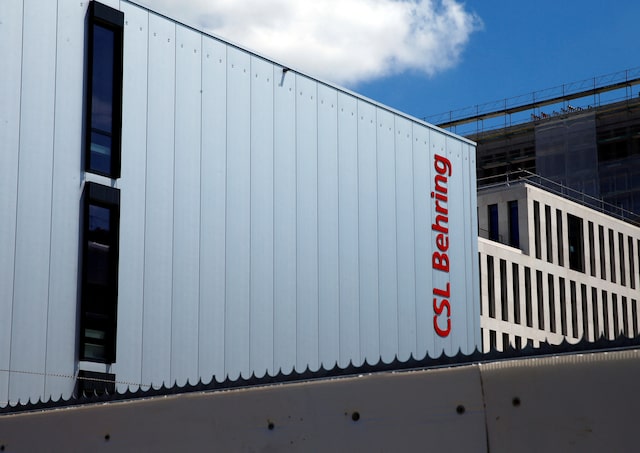A company logo is pictured on the CSL Behring building in Bern, Switzerland, June 15, 2017. REUTERS
Companies
- CSL Ltd
Feb 11 (Reuters) – Australian biopharmaceutical company CSL said on Tuesday that falling immunisation rates in the U.S., its largest market, weighed on its vaccine sales and first-half profit growth, sending its shares lower.
CSL, the world’s second-largest maker of flu vaccines, also warned that the trend of lower immunisation posed a public health risk for the U.S.
Revenue at CSL’s Seqirus vaccine unit fell 9% to $1.66 billion in the half-year ended December 31, 2024.
CEO Paul McKenzie said post-COVID apathy among 18-to-64-year-olds in the U.S., as well as reduced vaccine access, had created a weak operating environment.
“Performance has been negatively impacted by the significant decline in immunisation rates in the U.S.,” he said on an earnings call.
“The incidence of influenza and hospitalisation rates are up and this poses a significant public health risk.”
CSL’s results come as U.S. President Donald Trump’s health department nominee Robert F. Kennedy Jr, a vaccine skeptic, nears confirmation in the Senate.
The revenue of CSL Seqirus in the first half of the 2025 financial year was 15% below analysts’ forecasts for the unit and also caused its earnings to miss expectations.
Overall net profit rose 6% to $2.01 billion, driven by a 10% rise in revenue from CSL’s main blood-plasma business Behring. But the profit was slightly below analysts’ forecasts of $2.09 billion.
CSL shares were 3.5% lower by midsession on Tuesday, against a flat overall market.
RBC Capital Markets analyst Craig Wong-Pan said CSL’s performance was weaker than expected and “raised questions of how the company can achieve its FY25 NPATA guidance”.
But CEO McKenzie said the performance of CSL’s Behring and Vifor units would help push up full year profit between 10% and 13%, to a range of $3.2 billion to $3.3 billion.
The Behring unit, which makes up around 70% of CSL’s revenue, recorded a 15% jump in immunoglobulin sales to $3.17 billion, while its recently acquired iron deficiency and kidney disease division Vifor also improved sales and expanded its product offerings.
The Vifor unit had previously weighed on earnings, struggling to compete with generic competition in Europe after being acquired in 2022 for $11.7 billion.
Reporting by Christine Chen in Sydney and Aaditya Govind Rao and Shivangi Lahiri in Bengaluru; Editing by Alan Barona, Lincoln Feast and Muralikumar Anantharaman





